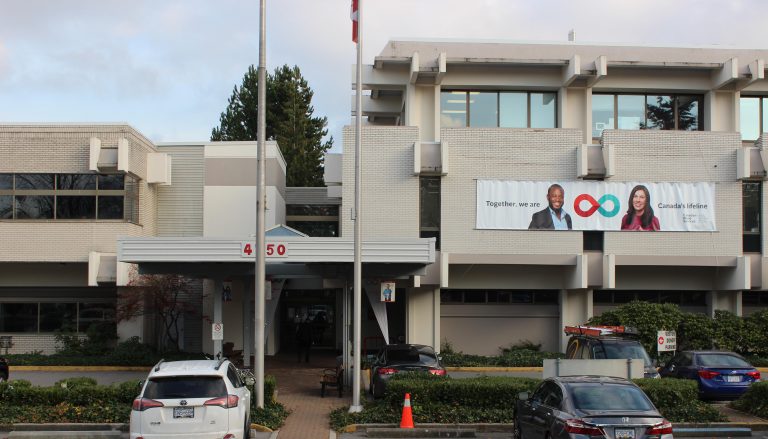 By Sarah Bowers, Undergraduate Student, Brown Lab
By Sarah Bowers, Undergraduate Student, Brown Lab
What is involved in getting blood that has been donated at a mobile clinic in Campbell River to a patient on the operating table at Vancouver General Hospital?
On Tuesday, July 24th, the CBR Summer Students headed to Canadian Blood Services’ Vancouver location to find out. The clinic and labs are located at Oak Street and 32nd Avenue, right next to BC Children’s Hospital. Our tour was led by Dr. Tanya Petraszko, a hematologist and medical director at Canadian Blood Services.
Created in 1998, Canadian Blood Services (CBS) is a not-for-profit charitable organization that manages the Canadian blood supply. With 36 fixed collection sites and more than 14,000 donor clinics every year, they are responsible for recruiting and collecting blood, plasma, and platelets all the way from Halifax to BC. The only exception is in Québec, where Héma-Québec operates. Dr. Petraszko pointed out that this national scope is one of the things that makes CBS so special.
First, we headed to the clinic where people were in the process of giving blood. As the CBR Summer Students had recently been on a tour of the netCAD Blood for Research facility (a special donor clinic and part of the CBS Centre for Innovation), we were interested to learn how this clinic compared. The main difference here is that because the donated blood components are intended for use by hospitals for medical care, patient safety must be considered in addition to donor safety. For donors, this involves filling out the Donor Questionnaire followed by a face-to-face screening prior to being allowed to donate. No test is available for mass screening for diseases such as malaria or bovine spongiform encephalopathy (BSE). For diseases like HIV, antibody and nucleic acid amplification testing (NAT) can be used. However, there is a window period of about 9 days following infection when the virus may not be detected but could still be transmitted. As a result, donor deferral is based on risk, and personal questions must be asked. Having said that, Dr. Petraszko told us that the answer to one simple question is typically a good indicator of eligibility… “Are you feeling well today?”
The Vancouver location that we toured also houses the production laboratory where blood from all over BC comes for processing. The protocols for transport change based on a number of factors, including the weather. Red blood cells aren’t fans of the July heat! When we arrived in the lab it was fairly quiet. Dr. Petraszko explained that often the busiest time is at night as units that have been donated throughout the day arrive. Samples of these units will have been sent for testing for things like infectious diseases and blood groups. Once the units arrive, blood products such as RBCs, plasma, and platelets, are separated and stored in appropriate conditions, just like at netCAD. We watched as labels were placed on products to reconcile them with their test results. Once testing and production are complete, the products are released to inventory and are ready to be distributed as needed to hospitals.
Many of us were not aware of the other services that CBS provides to Canadians. Dr. Petraszko explained that half of the CBS’ budget goes towards purchasing plasma protein products from the US for distribution within Canada. CBS also operates a Cord Blood Bank, the OneMatch Stem Cell and Marrow Network. Dr. Petraszko highlighted the fact that in the past, there was not fair distribution of organs across the country. CBS now manages the national patient registries for organ donation and transplantation in an equitable manner. We were interested to learn about the Kidney Paired Donation Program that allows people who aren’t a match for a loved one to still help through the swapping of compatible kidneys through multiple donor-recipient pairs to start ‘domino’ chains of transplants. The CBS recently facilitated their 1000th kidney transplant!
The CBR Summer Students would like to extend a big thank-you to Dr. Petraszko, others at the CBS Vancouver location, and Julie Kora for the opportunity to tour the facility. We now have a much better understanding of the work being done by Canadian Blood Services, and a new appreciation for its breadth. To find out more about Canadian Blood Services and becoming a donor, please check out https://blood.ca/, or ask a Summer Student!



